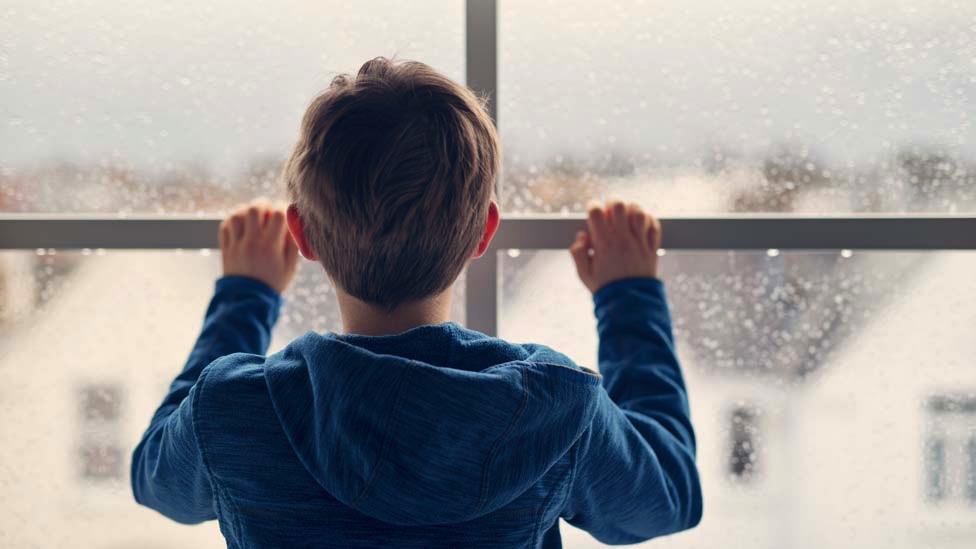Coronavirus: 'Unprecedented' rise in youth homelessness
- Published
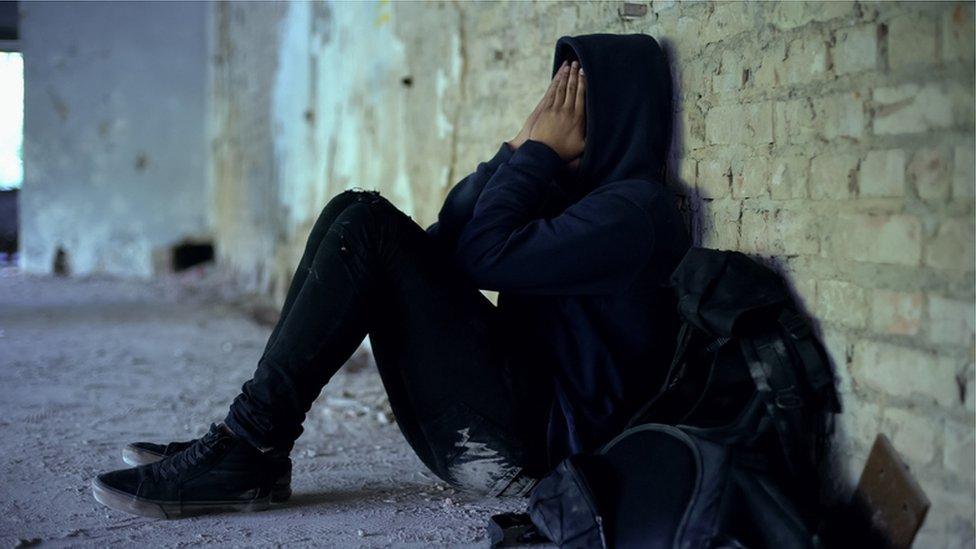
Charity Llamau says it has seen a 50% increase in referrals of young homeless people since lockdown was announced
There has been an "unprecedented" rise in the number of young people facing homelessness during the coronavirus crisis, a charity has said.
Homelessness charity Llamau said it had already received more calls this year than it did in the whole of 2019 - at a time when fundraising had collapsed.
A teenager from Newport said he faced homelessness after "sofa surfing" arrangements with family broke down.
The Welsh Government said it had made £24m available to support charities.
"Trying to operate a 24-hour service as a charity without the ability to fundraise is very difficult," said Frances Beecher, chief executive of Llamau, which employs about 500 people across Wales.
"There has been an unprecedented rise in demand we have not seen to date."

'There was an element of being scared'

Richard, not his real name, was left "not really knowing where to go"
Richard, not his real name, was staying with his aunty when the coronavirus lockdown was announced in March.
The 18-year-old, who spoke to the BBC on condition of anonymity, said he could not have lived with his mother because they had a volatile relationship, which they are now trying to rebuild.
Richard said he moved out of his aunty's house because he did not want to pose an infection risk to her baby.
He was sleeping on his sister's couch, but they soon began to argue and Richard was left "not really knowing where to go".
He got in touch with Llamau and the charity was able to find him a room in a shared house.
But the prospect of having to live on the streets was not a pleasant experience.
"There was definitely an element of being scared," Richard explained.
"But it's just moving on with life. Basically I just had a 'get on with it' attitude."


Llamau CEO Frances Beecher says the charity is seeing more homelessness caused by sofa surfing arrangements coming to an end
Ms Beecher said the charity was seeing two particular trends due to the coronavirus crisis.
One is young people who, like Richard, were drifting between friends or family members' sofas before the lockdown, and cannot stay there any longer due to infection fears.
Another is young people living with parents, or a parent, who are forced to leave due to the situation becoming "increasingly volatile".
For example, Ms Beecher said the charity had helped one young woman who was living with her mother, a recovering heroin addict who had relapsed due to the stresses of the lockdown.
As a result of these trends, Ms Beecher said the charity had expanded its services at a time when it is facing a £700,000 deficit - in part due to increased costs, but also reduced fundraising opportunities.
"We have taken the decision that we will continue until we can't continue anymore," she said.
"It's not the charity that's important, but the services we provide to people who need them."
A Welsh Government spokesman said it had also made grants available through its Economic Resilience Fund, external and business rates relief, external.
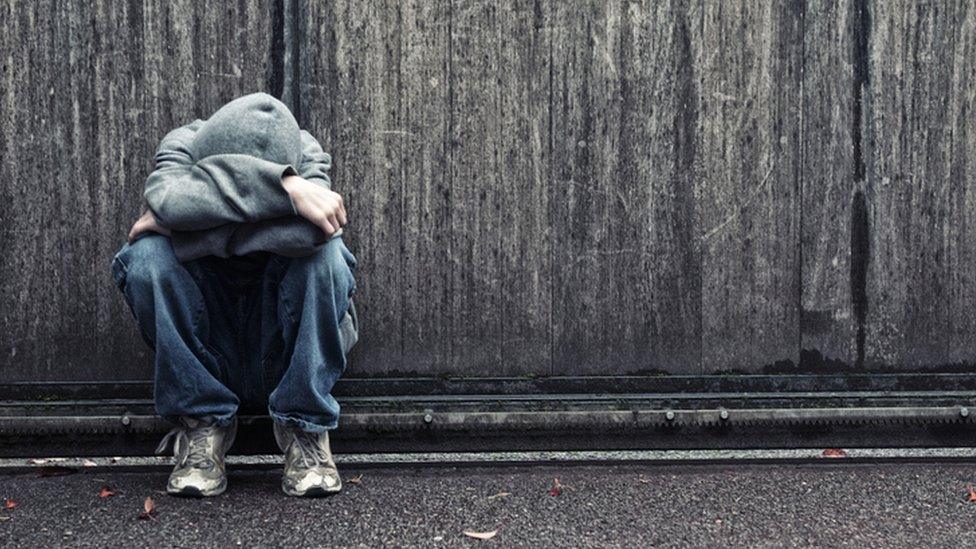
Ms Beecher called for more money for charities from the UK government
Ms Beecher said it was "very frustrating" not to see more money from the UK government to help charities in Wales through the crisis.
She said funding announced for England should be reflected in money sent to Wales under the Barnett formula, especially since many charities had been "cut to the bone" by austerity.
A UK government spokeswoman said it had provided "unprecedented" financial support to charities across the UK, including £32m under the Barnett formula.

TRANSLATOR: What do all the terms mean?
A SIMPLE GUIDE: How do I protect myself?
LOOK-UP TOOL: Check cases in your area
MAPS AND CHARTS: Visual guide to the outbreak

- Published13 May 2020

- Published4 May 2020
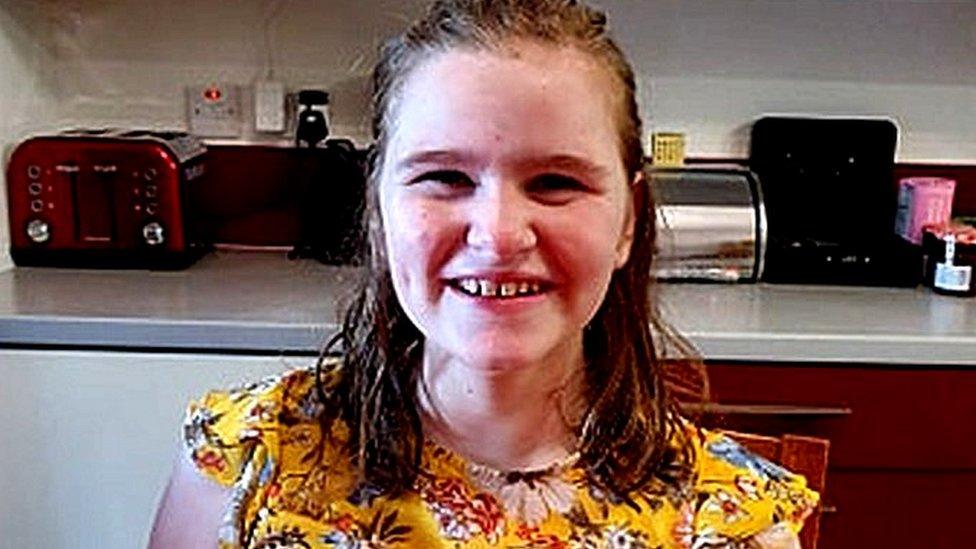
- Published25 April 2020
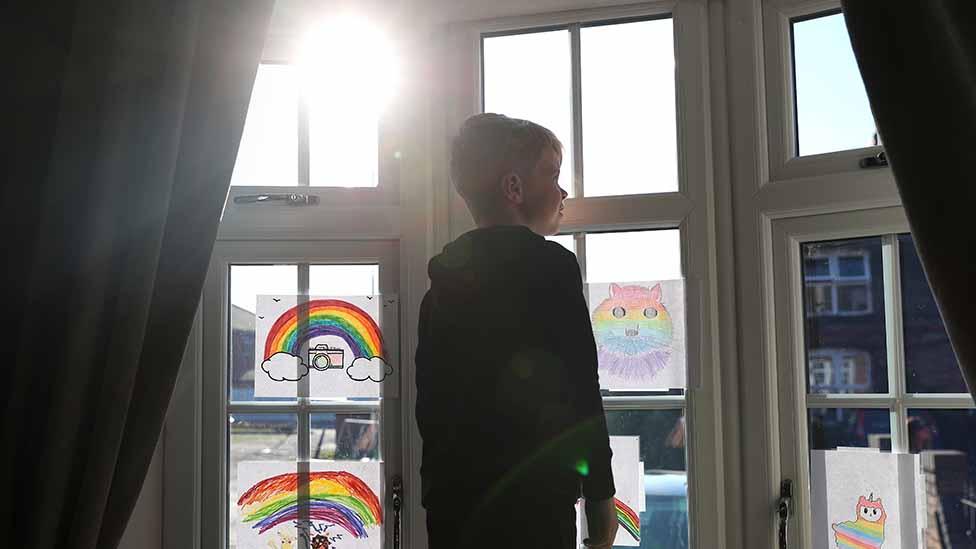
- Published9 April 2020
